




 |
   |
 |
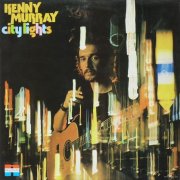 |
City Lights (1976, 38.10) **½/½ |
|
| How Can I Say That I Love You City Lights The Other With Your Eyes Lovesong (I'll Be Your) All I Need to Get By Sunday Night Valentine's Sees |
She's Away Where the Days |
|
Current availability:
Mellotron used:
Kenny Murray was (is?) apparently a Glaswegian, also apparently half of the duo Kenney & Pete, who, according to Discogs, released a lone single in 1972. 1976's City Lights is usually listed as being of Dutch origin, probably because, in a manner of speaking, it is: Murray might be British, but he'd settled across the North Sea, the album being recorded in the Netherlands, using a full complement of local musicians. Sadly, it largely consists of limp, if mostly inoffensive balladry, typified by opener How Can I Say That I Love You and With Your Eyes, more '60s than '70s, making The Other, which sounds like it was heavily influenced by Foreigner's contemporaneous Cold As Ice (assuming that had actually been released when this was written), easily the best thing here, Valentine's Sees' heavy(-ish) blues limping into second place.
Roelof van Luiveren supposedly plays Mellotron, although the only place it even might be is on Lovesong (I'll Be Your), the track's strings sounding as if a Mellotron has been mixed in with real ones. Why bother? I have no idea. Either way, you really don't need to hear this.
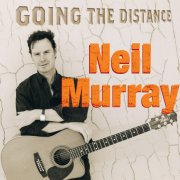 |
Going the Distance (2003, 50.24) ***/T |
|
| Long Grass Band Beer in Our Hands Circumstances Is That a Sign? Over the Moon Holding on to Sky Out of Reach Myall Creek |
Mobile Phone Blues High on a Hill Tom Wills Would |
|
Current availability:
Mellotron used:
Neil Murray (not to be confused with the legendary British bassist) is an Australian singer-songwriter and author who has had a solo career since the late '80s, after playing with the Warumpi Band for most of that decade. 2003's Going the Distance was his fifth album, a decent enough collection of Americana-infused material, possibly at its best on the bluesy Beer In Our Hands, Circumstances and Myall Creek, although Mobile Phone Blues hasn't dated well.
Midnight Oil's Jim Moginie plays (presumably) his own Mellotron, although the only obvious sighting is a flute part on Out Of Reach. By no means a bad record, this is one that's unlikely to transcend its home audience, while the Mellotron use is too minimal to be of any real consequence.
See: Jim Moginie
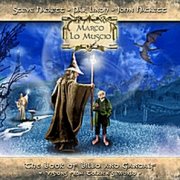 |
The Book of Bilbo & Gandalf (2010, 73.21) ***½/TThe Fellowship on Entering the Magic Forest of LothlorienGaladriel Dark and Light Galadriel Medieval Melodies - Theoden's Meditation Medieval Melodies - The Knights of Rohan Thoughts Turn Homeward The Hobbit Book Visions From Minas Tirith |
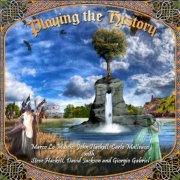 |
Playing the History [as Marco Lo Muscio, John Hackett, Carlo Matteucci with |
|
| Jerusalem Catherine of Aragon Overnight Snow Hairless Heart After the Ordeal Horizons Fanfare and Lute's Chorus Hammer in the Sand Theme One |
I Talk to the Wind Shadow of the Hierophant Hands of the Priestess Galadriel Galadriel's Memories Bilbo's Dream Visions From Minas Tirith The Great Gig in the Sky |
|
Current availability:
Mellotrons used:
Marco Lo Muscio is a classically-trained Italian pianist, with a soft spot for '70s progressive rock. And why not? 2010's The Book of Bilbo & Gandalf is the latest entrant in the somewhat overworked Tolkien-referencing prog sub-sub-genre, this time with a difference; not only instrumental (OK, so was Bo Hansson's Lord of the Rings and doubtless others), but consisting mostly of virtuoso piano pieces, albeit with a slight Celtic feel about which I can't imagine ol' J.R.R. being too happy (see: the film trilogy's soundtracks). There are exceptions to this rule: Galadriel is effectively a Steve Hackett solo piece, while his flautist brother John gets his chance on Thoughts Turn Homeward, accompanying Lo Muscio, with a (real) church organ/flute combination on beautiful closer Visions From Minas Tirith.
Lo Muscio occasionally varies his musical diet, notably when he suddenly lurches into a slightly jazzy feel about eight minutes into Dark And Light, although the bulk of the album follows the tried'n'tested formula. If I have any criticisms, it's too long, particularly The Hobbit Book's eighteen minutes of unaccompanied piano, while some of the composition lacks complexity, being too reliant on rock chord sequences than classical ones, with little key modulation. One Mellotron track, from guest Pär Lindh, with a flute line and strings on opener The Fellowship On Entering The Magic Forest Of Lothlorien, Lo Muscio sadly resisting the temptation to have Lindh embellish any other tracks.
Playing the History is, effectively, a tribute album, Muscio accompanying John Hackett and assorted friends, mostly on church organ. Does his approach work? In places, certainly, but an all-stops-out church organ has something in common with a Mellotron: great in small doses, but when applied in 'carpet-bomb' style, it tends to lose its efficacy. Top tracks? Maybe After The Ordeal (Genesis), Steve Hackett's mighty Shadow Of The Hierophant, although the epic closing section loses some of its thunderous power and Muscio's own Visions From Minas Tirith. The album's one real mistake is The Floyd's Great Gig In The Sky, Van der Graaf's David Jackson's sax sounding raucously tuneless against the organ. Muscio's credited with 'M400', although I've no idea whose. Anyway, all we get is a handful of string chords at the beginning of Shadow Of The Hierophant.
See: Steve Hackett | Pär Lindh
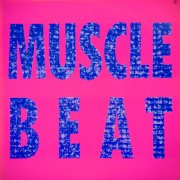 |
Muscle Beat (1987, 39.50) ***½/T |
|
| Rock'n Roll's Crazzy C.D. Neon Lights Diamond Narcisstic Kurai Tokoroe Do the Muscle Beat! Bed-Room Queen Candina |
Shingo Da! Candy Box Love Song She's a Drug |
|
Current availability:
Mellotron used:
To my knowledge, Muscle Beat released just two albums at the end of the '80s, including their eponymous '87 debut. While this has a distinctly commercial feel, its hard rock is closer to '70s British glam than the repellent US '80s version, complete with a heavy rock'n'roll influence. It's at its best on opener Rock'n Roll's Crazzy [sic], Do The Muscle Beat! and Candy Box; joyous, life-affirming and, above all, a lot of fun.
Guitarist Bravo Komatsu and session muso Ken Ishikawa play Mellotron, with bloody great slabs of strings all over Kurai Tokoroe and cellos on Love Song, both to good effect. You can hear this on YouTube; frankly, I'd advise you to do so, if you're in need of a break from the serious stuff.
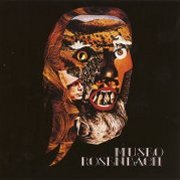 |
Zarathustra (1973, 39.40) *****/TTTTTZarathustraL'Ultimo Uomo Il re di Ieri Al di là del Bene e del Male Superuomo Il Tempio delle Clessidre Degli Uomini Della Natura Dell'Eterno Ritorno |
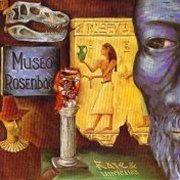 |
Rare & Unreleased (1992, recorded 1972, 78.05) ****/TTT |
|
| Zarathustra Degli Uomini (instrumental) Degli Uomini (instrumental) Dell'Eterno Ritorno (instrumental) Dopo Look at Yourself With a Little Help From My Friends Shadows of Grief |
Valentyne Suite (excerpt) Dopo (English version) Dell'Eterno Ritorno |
|
Current availability:
Mellotrons used:
You know those albums that are given the 'classic' mantle, but can't live up to the hype? Well, this isn't one of them. Zarathustra really is that good. I didn't believe it myself until I'd given it a few listens; beginning to end, not a note out of place. So the drummer is playing to the absolute limits of his ability, but the sheer excitement and dynamics of his playing carries all before him. I've rarely heard a drummer this, well, enthusiastic; he's obviously loving every moment of his one shot at fame and makes the most of it in no uncertain manner. The strangest thing about Zarathustra is its relative obscurity; released in 1973, it obviously sold bugger all at the time and it was only with its CD issue in the '90s that an appreciable number of prog fans got to hear it. Some purists have derided it for being 'too heavy', but as long as you're not offended by a bit of distorted guitar, you've got nothing to worry about.
The first side of the album consists of the twenty-minute title track; a gentle Mellotron flute intro from Pit Corradi leads into a series of dramatic Mellotron strings-led chords, quietening down again before some manic drumming introduces the song's main riff. 'Phenomenal' is the word that springs to mind; massive organ and Mellotron chords riding over riffing guitar and more of that drumming. This guy never stops!; I've rarely heard anyone go for it like him. Without him, the album would be great; with him, it's superb. Proof of just how important a good, dynamic drummer is to a band. The piece moves through several sections until finally, after a long sustained organ chord, it ends up back at the main riff, repeated with guitar interjections before the fade out. Side two is every bit as good, with another three excellent songs; quite where Museo Rosenbach found their inspiration is unknown, but they produced a near-perfect album, then simply disappeared.
There are a couple of archive releases available; Live '72 (***½) is good, but lacks Mellotron (presumably they didn't obtain one until later that year, unless they used a studio machine). In 1992, Mellow released an LP titled Rarities and a CD, Rare and Unreleased, which apparently (and irritatingly) feature different selections from the band's demo archives. I haven't heard the LP, but the CD is excellent, showcasing a gentler, piano-led version of Zarathustra and instrumental versions of various other album tracks. There's maybe less Mellotron than on the eventual recorded versions, although some of the parts are different, with the odd 'wobbly' here and there. The rest of the album consists of Mellotronless live tracks, including no fewer than two Uriah Heep numbers and another two early versions of album tracks, sans Mellotron. A good album, but really only for the committed fan.
Albums as good as Zarathustra come along all too rarely; maybe it's a good thing Museo Rosenbach's career was so cruelly truncated, as they never got the chance to slide into mediocrity (see: PFM), or felt the need to 'go commercial' (see: anyone you care to mention from the late '70s). It turns out that they reformed in the late '90s, probably in direct response to the belated popularity of their classic, releasing Exit in 2000, but I've no idea whether or not the new band are any good, though I suspect not; you can be certain, however, that they don't use Mellotron.
See: Il Tempio delle Clessidre
Mushroom (US) see: |
 |
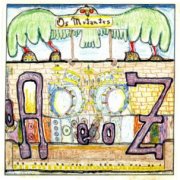 |
oAeoZ (1992, recorded 1973, 48.22) ***½/TT½"A" e o "Z"Rolling Stones Vocé Sabe Hey Joe Uma Pessoa Só Ainda Vou Transar Com Vocé |
Current availability:
Mellotron used:
These days, (Os) Mutantes are revered for their late-'60s psych albums, produced against all the odds under the repressive Brazilian regime of the time, while their '70s work is derided for being 'tedious prog rock', or some such unflattering description. Fashionistas - who needs 'em? Of course, their prog period was very much in keeping with the times; they couldn't carry on producing psych-pop without looking ridiculously dated, which tends to be forgotten by Those Who Would Define Our Taste. What's more, not only is there nothing wrong with said style (and yes, I will argue this point to the death. Well, nearly), but Mutantes were perfectly good at it, as oAeoZ (not released until twenty years after the event) proves quite unequivocally. Musically varied, some tracks work better than others, the bluesy Rolling Stones being the chief casualty, while the acoustic Vocé Sabe and the Yesalike Hey Joe (not that one) working far better.
I've recently been informed (by an acquaintance who actually knew the band at the time) that Mutantes moved to London in the early '70s, squeezing themselves into a tiny flat, presumably all they could afford. They bought a Mellotron and shared said flat with it, using it on these recordings (although not on their next album, 1974's Tudo Foi Feito Pelo Sol); Arnaldo Baptista's use is pretty restrained, with a few simple strings chords on the title track and some more upfront use (strings and flutes) on the lengthy Hey Joe, including a squeaky high part, played about as quickly as is possible on the machine. Flutes and more strings on the last two tracks make this a borderline Mellotron Album, but it's certainly worth hearing for the prog fan looking for something slightly different.
See: Rita Lee
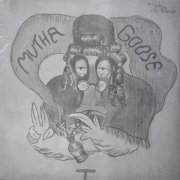 |
Mutha Goose I (1975, 26.47) ***/½You Said GoodbyeI Think it's You Exodus Freak-Hitchhicker Being Her Friend |
Current availability:
Mellotron used:
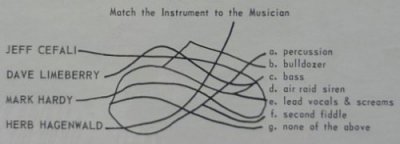 |
You want obscure? (Pt. 94) Mutha Goose were a one-off outfit from Indiana, who had the uncommonly good sense for the era to name themselves something easily Internet-searchable twenty years later (er...). Their sole album, the exceedingly short and rather optimistically titled Mutha Goose I, is a slightly dated-for-the-time prog album, with rockin' guitars on a couple of tracks, notably the straightforward boogie of Freak-Hitchhicker [sic.] None of the material particularly stands out, although at least they were musically ambitious, which is more than you can say for most of their contemporaries. OK, most bands ever, from anywhere.
There's no way of telling from the sleeve who plays the (uncredited) Mellotron, or, indeed, anything else, as in a fit of stoned humour (or something), the band opted to list on the rear sleeve the four members to the left, seven items (including 'bulldozer', 'air raid siren' and 'second fiddle') to the right and a series of tangled lines in between, with the legend 'match the instrument to the musician' (right). Thanks, guys. Anyway, the unknown player adds a brief string part to opener You Said Goodbye and an equally brief flute one to Exodus, making the album eligible for this site, but only just. Available on download blogs, but the chances of this receiving an official reissue appear slim.
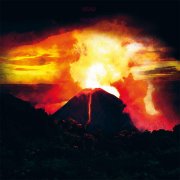 |
Live at Roadburn 2013 (2014, 62.24) ****/TT½Sulphur Valley DawnAncient Caravan The Mountain Trail Further Up the Mountain Trail Into the Cosmic Halo |
Current availability:
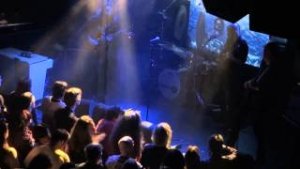 |
Mellotrons used:
Although Nicklas Barker's My Brother the Wind use Mellotron samples in the studio, they sourced a real M400 for their 2013 Roadburn appearance (see pic, right). Their hour-long set at Tilburg's legendary festival has been split into named tracks for the release, but I'd imagine that's more for convenience than anything, as it's basically one long space-rock jam, like Hawkwind at their early, coruscating best. This is 'head music' in the best possible sense, transcendence through noise, with the knowledge that listening to it in the comfort of your own home can only ever be a pale shadow of the original live experience.
Barker switches from guitar to Mellotron three times, with a ripping string part on Sulphur Valley Dawn, morphing into flutes in the quiet section, choirs-into-strings on Ancient Caravan and choirs at the end of Into The Cosmic Halo, making you wish they'd use the real thing when recording, too. I've loved everything I've heard by My Brother the Wind, but I might just love this a little more than everything else. Buy.
See: Samples etc.
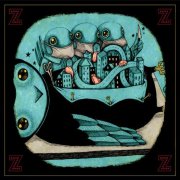 |
Z (2005, 45.49) ***/T |
|
| Wordless Chorus It Beats 4 U Gideon What a Wonderful Man Off the Record Into the Woods Anytime Lay Low |
Knot Comes Loose Dondante |
|
Current availability:
Mellotron used:
My Morning Jacket are that seemingly rare thing over the last couple of decades: an 'indie' band who actually don't sound very indie, taking their influences more from Americana and Neil Young than The Velvets. Their fourth album, 2005's Z, probably has the shortest title on this site. That'll be 'Zee', of course, not 'Zed'. I wonder how many Brits reading this remember Billy Gibbons' bunch being referred to as 'Zed Zed Top' on UK radio when they first made it over the pond? Anyway, while not a bad album, it's also rather less exciting than its immediate predecessor, It Still Moves, although it has its moments.
Now, I've had this in Samples for ages, but I've become aware that it was partially recorded at New York state's Allaire Studios, who own a Mellotron, so, although the strings (presumably from new keys man Bo Koster) on Off The Record sound somewhat inauthentic, the clicky flutes make me think we're hearing the real thing.
See: Samples etc.
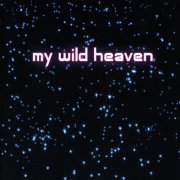 |
My Wild Heaven (2008, 39.22) ****/T |
|
| Zoe Abides Grand Larceny Hey Nikki ESP Mission Over Tokyo Paradise in Canada Julies' Way Lil' Pumpkin Porsche |
After You're Gone The Life and Times of General Jacket Sputniks May Safely Phase The Ritual Dance of the Lizards |
|
Current availability:
Mellotron used:
My Wild Heaven are a project from the people who brought us the Zachary Jones Band, Mr. Jones being as fictional a personage as Max Webster or Simon Dupree. MWH couldn't be more different to the ZJB if they tried; a power trio, they specialise in what mainman Bill Bechtel describes as 'sci-fi rock', or aggressive hard rock with space-rock and prog tendencies, particularly in the keyboard department, overlaid with science-fictional lyrics. The material was written over a lengthy timespan, the earliest piece being closing instrumental The Ritual Dance Of The Lizards that Bill wrote at college in the late '70s, right up to songs written during the recording process. Suffice to say, My Wild Heaven has had a long gestation and it's nice to see someone's 'baby' finally see the light of day.
I'm reliably informed (thanks, Bill) that most of the 'Mellotron' work here is sample-based, with the exception of Sputniks May Safely Phase (ho ho), an instrumental consisting almost entirely of real M400 cellos, strings and flutes. You can spot it as the one genuine Mellotron track a mile off; its tuning is way off and it sounds as cranky as hell. Excellent! Now, Bill: new motor control card and a second tape frame. You know you want to... The rest of the album is smothered in Mellotron patches from the Mike Pinder CD-ROM and sound pretty good, albeit far too smooth for the real thing.
See: Zachary Jones Band
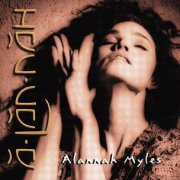 |
A-Lan-Nah (1995, 49.47) ***/T |
|
| Mistress of Erzulie Blow Wind Blow Family Secret Mother Nature Irish Rain Dark Side of Me Simple Man's Dream Lightning in a Bottle |
Keeper of My Heart Do You Really Wanna Know Me Everybody's Breakin' Up Sally Go Round the Roses |
|
Current availability:
Mellotron used:
Alannah Myles remains best-known for her eponymous 1989 debut album and its major hit, Black Velvet. 1995's A-Lan-Nah is her third effort, by which time she was commercially on the slide; surprising, as it's a pretty commercial album, channelling mid-'80s AOR in a vaguely Heart vein. Maybe that was the problem; the style had gone completely out of fashion by then, former megastars reduced to playing theatres or dissolving acrimoniously (or both). The album rocks, albeit lightly, a handful of tracks heading in a quieter direction; there's something of a folky Zeppelin vibe about Mother Nature, Everybody's Breakin' Up has an almost late-nite jazz feel, while Irish Rain and Sally Go Round The Roses are heavily immersed in Celtic folk.
Phil Parlapiano plays Mellotron, amongst other things, although it's so indistinct that I'm almost having to use guesswork as to its location. I think that's Mellotron flutes on Mother Nature, although it could be almost anything, really and very background strings on Lightning In A Bottle, although I wouldn't entirely stake my non-existent reputation on either.
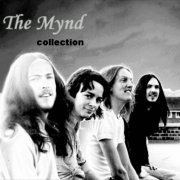 |
Collection (2008, recorded 1972-?, 60.58) ***½/TTTTAt This Point in TimeI am a River In Motion Communicate Disorientation Test The Spider Every Mushroom Cloud Long Time No See/Checkmate |
Current availability:
Mellotron used:
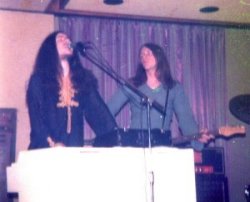 |
The Mynd, from the North-East, were one of a host of British progressive bands in the '70s who, despite gigging around for years and working their arses off, never made it, eventually splitting when the Great Punk Purge hit later in the decade. The mainstays of the band were keyboard player Billy Surgeoner and his guitarist brother, Bob, who between them wrote and sang the band's largish repertoire of original material. Having released nothing at the time, the only reason they've found any sort of public platform is their Bandcamp page; although Billy provided me with three discs'-worth of live, studio and rehearsal stuff, their Bandcamp album strips their catalogue down to eight of their best compositions.
Kicking the set off with the thirteen-minute At This Point In Time is a good move, the track encompassing the various facets of the band's sound, possibly best described as Barclay James Harvest crossed with the lighter end of King Crimson, the latter clearly an influence on closer Long Time No See/Checkmate. In Motion, the dynamic Disorientation Test and Communicate are from a rehearsal tape, while the more-psych-then-prog The Spider and Every Mushroom Cloud are studio recordings from the early '70s, prior to Billy's expensive purchase of a new M400, his chief keyboard for much of the band's career. Speaking of which, attempting to log Surgeoner's Mellotron use is difficult to nigh-on impossible, as there's so much of it. He tells me he only owned the M400 and a Hohner organ for a while, eventually adding a small Korg monosynth to his rig, but relying on his M400 more than anything. Mellotronic highlights? Probably At This Point In Time, stuffed to the gills with strings and flutes and the speedy flute solo on Long Time No See/Checkmate, although all highlighted tracks features bloody great slabs of the thing.
So how did he afford such an outrageously expensive keyboard? The Mellotron was £1200 in the early '70s; to put that in context, you could buy a small house in a not-so-good area for the same. Apparently, he borrowed the money, then paid it off in a year or so by the band doubling as a presumably well-paid covers act, as so many had to at the time. Incidentally, Billy used to stick his M400 through a wah pedal (notably on Disorientation Test and Lost In A City), which, to my knowledge, is unique, unless you know better...
See: Unreleased | High Chair
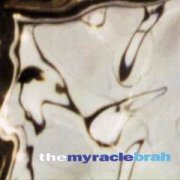 |
The Myracle Brah (2000, 41.14) ***/T½ |
|
| I'd Rather Be Message '78 When She Cries Madaliene Going Crazy Out of Tune Crane She's Gonna Fly |
Smile Dying 310 Hey Now Inside Those Eyes |
|
Current availability:
Mellotron used:
As previously stated in my review of The Myracle Brah's Bleeder, they're Baltimore-based Andy Bopp's powerpop project, irritating joke name and all, whose third album, 2000's The Myracle Brah, is a pretty decent set of genre material. Highlights include opener I'd Rather Be, mid-paced jangle-fest When She Cries and retro-boogie Hey Now, weaker tracks including the dreary Crane and closer Inside Those Eyes, although nothing here actually offends. Is that a recommendation?
Marty Canelli plays Mellotron, probably real, although it's really not easy to tell, with strings on Madaliene and She's Gonna Fly, distant choirs on Going Crazy and strings and flutes on Dying 310. While no classic, this is worth hearing for genre fans, at least; how did Bopp get it so wrong the next time round?
See: Samples etc.
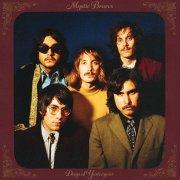 |
Days of Yesteryear (2015, 43.40) ***½/TT |
|
| To Myself No Trash Now That You're Gone As You Wonder (Why) 5 Minutes Dream Girl Spanish Rain Corazon Down on Me |
Great Company Born to Get to You |
|
Current availability:
Mellotron used:
LA's Mystic Braves are early psych-era revivalists, influenced by The Seeds and The Zombies, amongst others, also throwing elements of surf and garage rock into their '60s stew. 2015's Days of Yesteryear is their third album, stuffed with period detail, at its best on No Trash, 5 Minutes Dream Girl, the beautiful Spanish Rain and the Byrds-esque Great Company.
Rob Campanella (The Quarter After, others) plays his M400, with a flute part on Now That You're Gone, chordal strings on Spanish Rain, massed strings and solo cello in Great Company and strings on closer Born To Get To You. Seriously, these guys are so authentic that it's only their modern production (in a good way) that lets you know this isn't a buried treasure from the era. Oh, and the fact that they're not all nineteen.
Mythos (Germany) see: |
 |
 |
Kiedy Wilki Zawyja? (2021, 34.52) ***½/½ |
|
| Witch Drones/The State She Turns to Dust Slumber Pin Sylwia's List God of Claws Last Exit to Lublin Elphame Red White and Blue |
A Narky Monkey TV Lives |
|
Current availability:
Mellotron used:
Mzylkypop are the duo of Michael Somerset Ward (ex-Clock DVA/Army of Briars) and Sylwia Anna Drwal, who achieve a fusion of seemingly dozens of often disparate styles on their debut, 2018's Kiedy Wilki Zawyja? (When Will the Wolves Howl?). Amongst them are the recorder-led mediævalisms of Slumber Pin, the twisted spy film sonorities of God Of Claws, the Wicker Man-esque Elphame and the bursts of electronica scattered throughout, which doesn't even come close to getting a handle on this strange record. Although folk influences pervade several tracks, this is pretty much uncategorisable, and all the better for it.
Jarrod "Regal Worm" Gosling (also of I Monster and Cobalt Chapel) plays his own Mellotron (he also drums on the record), with background strings on She Turns To Dust. I'm not going to claim this is an easy listen, but who wants to hear easy listening?